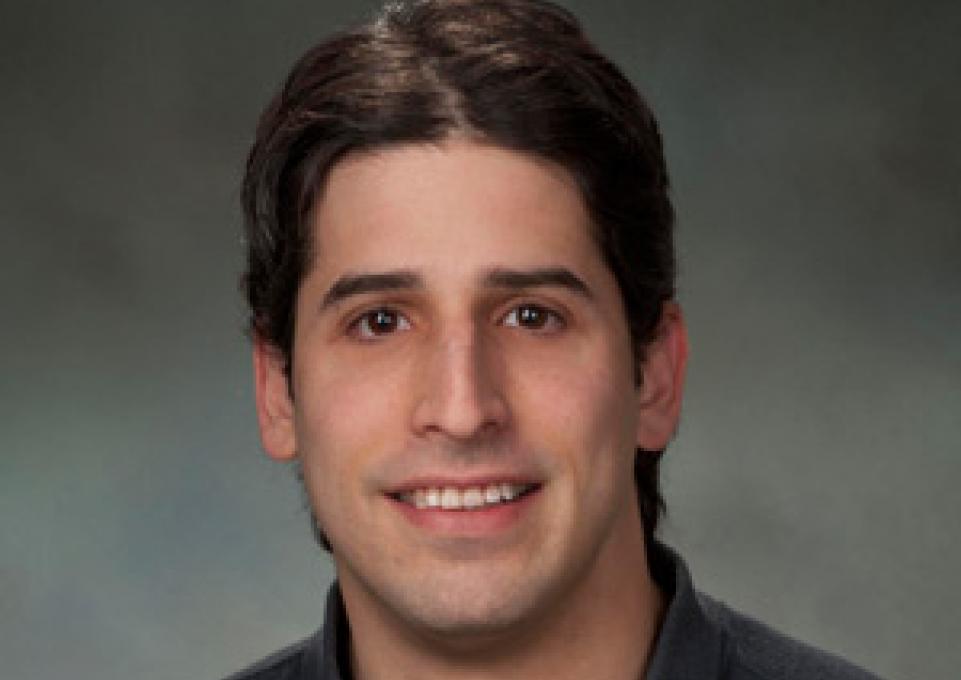
In an era when politicians, pundits, and Twitter users debate the veracity of news accounts and even verified facts, a group of humanities academics recently examined the concept of “fake news” through the lens of literature.
David Ben-Merre, associate professor of English, moderated the roundtable discussion “Alternative Facts and Fictions: Negotiating Multiplicity and Indeterminacy in Light of the 2016 Presidential Election and its Aftermath” during the 2018 Modern Language Association (MLA) conference held January 4-7 in New York City. Founded in 1883, the MLA is a leading advocate for the study and teaching of languages and literature.
Barish Ali, associate professor of English, served on the panel and focused on political euphemism and how using factual language, as opposed to alternative facts, has led to the imprisonment of journalists and other writers. They were joined by professors of English, religious studies, French, and media studies from institutions across the country.
“The panel articulated the similarities and differences of past writers and theorists who said that objective truth only reflects underlying values of a particular era,” Ben-Merre said.
For instance, Lucas Wood, an assistant professor of French at Texas Tech University, noted that as far back as the twelfth century, people tended to denounce ugly truths imbedded within fictional narratives that reflected poorly upon them.
Much more recently, during the so-called cultural wars of the 1980s and ’90s, academics began rethinking the classical canon of literature and questioning prevailing attitudes about what is true, Ben-Merre said. Some say that poststructuralists such as the late theorist Jacques Derrida may have contributed to the current situation by questioning then-prevailing attitudes about what constitutes truth.
“That is not the same thing, nor is it as dangerous, as the troubling national rhetoric where alternative facts are allowed to stand on such issues as global warming or childhood vaccinations,” Ben-Merre said. “Someone can find a little typo or contradiction on the 500th page of a climate report and the whole thing is questioned.”
Of course, today with the Internet transporting myriad opinions across the globe at lightning speed, false narratives are more pervasive and more dangerous, Ben-Merre said.
“A celebrity can write something on social media about how the earth is flat and suddenly all his followers believe it.”
From a literature perspective, Ben-Merre said readers of a novel such as Moby Dick should be encouraged to interpret metaphors and symbolism differently. Yet certain facts remain.
“Some readers may understand it as allegorical of nineteenth-century American history, or of racial relations, or of gender situating, or of desire itself. The list goes on, and readers’ attempts to ‘capture’ the answer uncannily mirrors Captain Ahab’s desire to capture the whale,” he said. “But however readers understand the meaning, they agree that Ahab is a whaling captain, not a stockbroker in Cincinnati.”
About David Ben-Merre
Ben-Merre joined the Buffalo State English Department faculty in 2008. He earned a bachelor’s degree in English and a master’s degree in humanities from Johns Hopkins University. He earned a second master’s degree in English as well as a doctorate in English from Brown University. His primary research interests are modernism, poetics, intellectual history, and interdisciplinary studies. His book Figures of Time: The Disjunctions of Modernist Poetry was published in February 2018 by SUNY Press. In addition to serving on the Board of Directors for The American Mock Trial Association, he enjoys creating crossword puzzles, one of which was featured in the New York Times.
